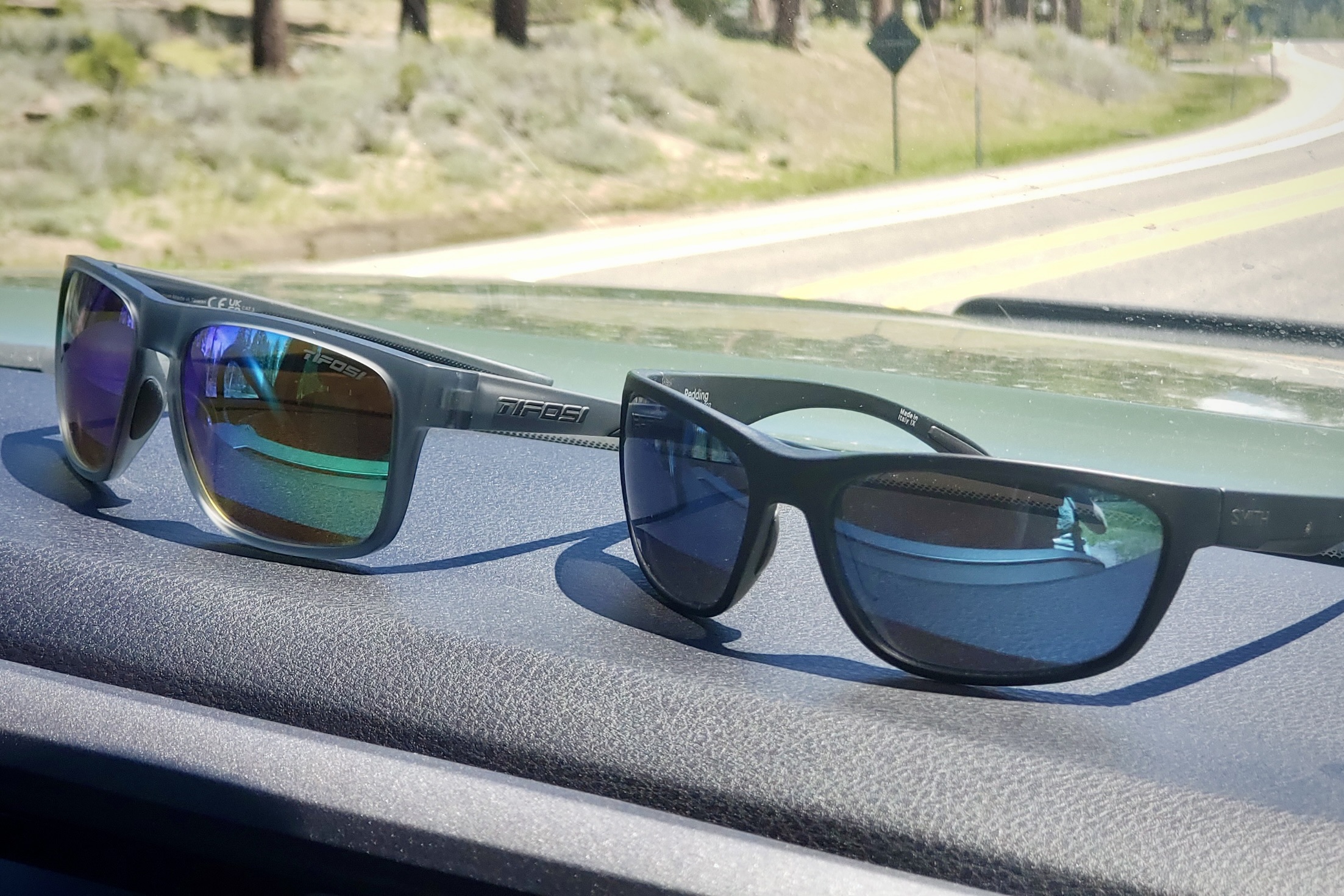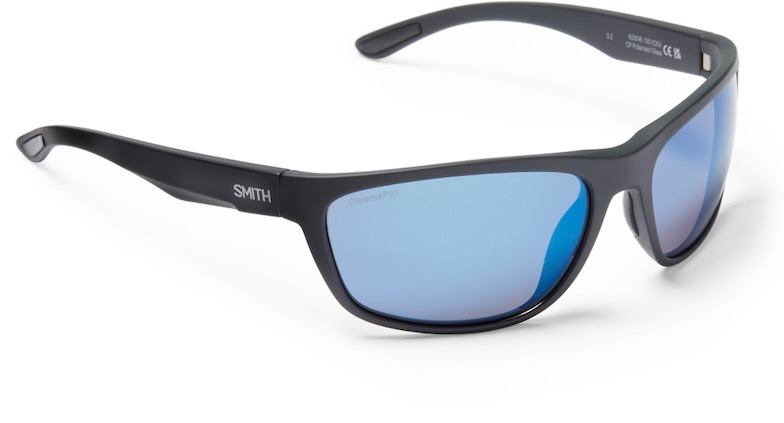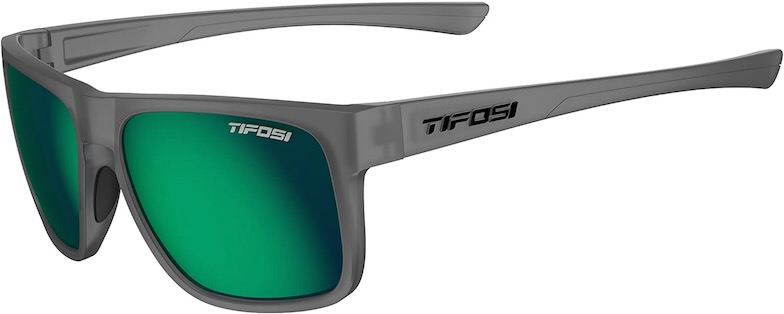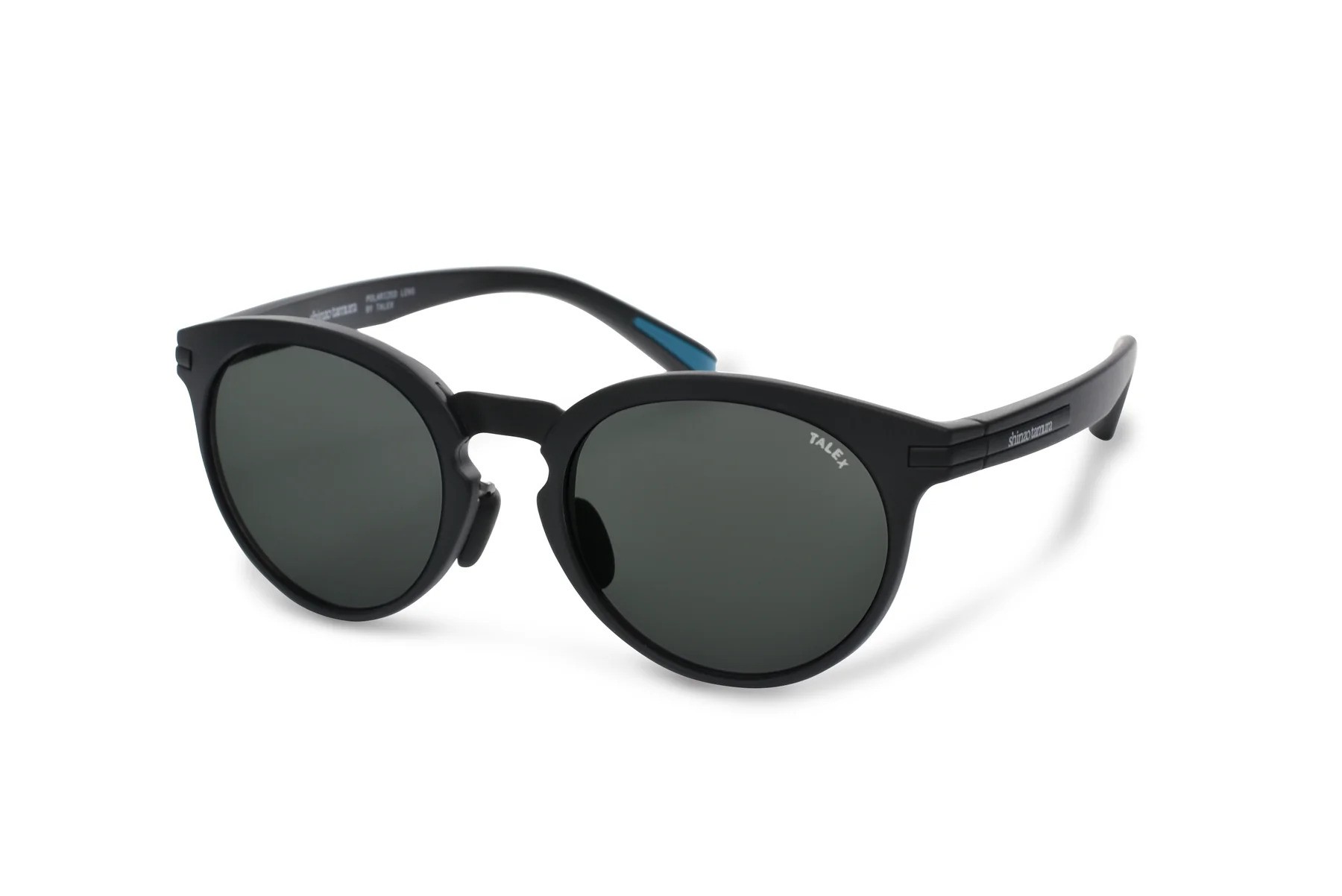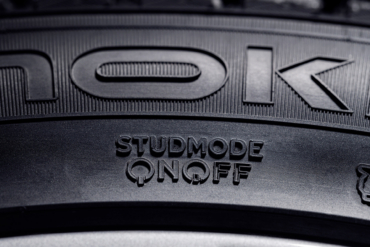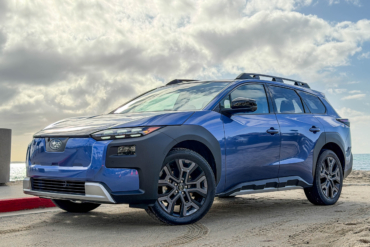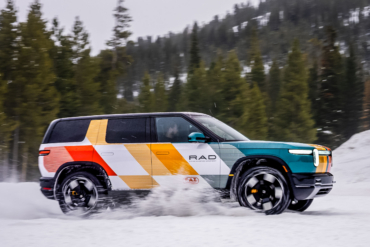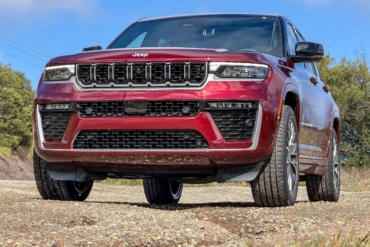The best driving sunglasses allow you to enjoy your drive more comfortably and safely without any unnecessary distraction from the sun. Whether you’re looking for something classic to make you feel like Hollywood action star, or something sporty and versatile for everyday active wear, we spent the last two years testing nearly two dozen of the best driving sunglasses to help you find the right pair for you.
We put these sunglasses to the test by driving and recreating across the sunny state of California. From coastal road trips along Highway 101, to rush hour traffic in L.A., to the high-elevation summer sunshine and winter snow in Lake Tahoe, we wore these sunglasses in some of the most strenuous light conditions imaginable. If you want to skip the reading and just check out our top picks, consider the sporty Smith Redding, the classic Ray-Ban Aviator, or the capable and affordably priced Tifosi Swick Polarized.
At the end of our list, be sure to check out our Comparison Chart, along with our comprehensive Buyer’s Guide that includes a new Price & Value section.
Editor’s Note: Our October 8, 2024, update to this Guide adds the Shinzu Tamura Umeda, our new top pick for the most stylish driving sunglasses, and additional information about price & value to help inform your purchase decision.
The Best Driving Sunglasses of 2026
Smith Redding Chromapop Glass
- Best for: Wraparound coverage in all conditions
- Lens material: Glass
- Frame Size: Small/Medium
- Lens Shape: Square
- Polarized: Yes
Pros
- Excellent optics and color accuracy
- Wraparound style provides great peripheral coverage
- Close, comfortable fit
Cons
- Close fit can cause fogging during active use
Tifosi Swick Polarized
- Best for: Active use, all-around wear
- Lens material: Polycarbonate
- Frame Size: Medium/Large
- Lens Shape: Square
- Polarized: Yes
Pros
- Affordable price
- Comfortable fit
- Good coverage and protection
Cons
- Sportier style might not suit everyone
Ray-Ban Classic Aviator
- Best for: Classic aesthetics, great peripheral vision
- Lens material: Crystal
- Frame Size: Medium
- Lens Shape: Aviator
- Polarized: No
Pros
- Sleek classic appearance
- Durable lenses
- Plentiful peripheral vision, minimal bind spots
Cons
- Lacks peripheral coverage
- Not all lens styles are polarized
Oakley Holbrook Mix
- Best for: Driving on bright summer days
- Lens material: Plastic
- Frame Size: Medium
- Lens Shape: Rectangle
- Polarized: Yes
Pros
- Impressive contrast enhancement
- Durable frame
- Handsome styling
Cons
- Expensive for plastic lenses
Shinzo Tamura Umeda
- Best for: Great optics and classic style
- Lens material: Talex
- Frame size: Medium
- Lens Shape: Round
- Polarized: Yes
Pros
- Classic retro style
- Lightweight frames and lenses
- Excellent optical quality
- Onyx HD lenses provide great color accuracy
- Available in two frame colors and five lens styles
Cons
- No peripheral coverage
- Somewhat expensive
Fiore Over Glasses Sunglasses
- Best for: Wearing over prescription glasses
- Lens material: Plastic
- Frame Size: Medium
- Lens Shape: Wrap around rectangle
- Polarized: Yes
Pros
- Affordable
- Compatible with most prescription glasses
- Cuts glare
Cons
- Slightly bulky
Maho Sundance
- Best for: Long road trips, overcast conditions
- Lens material: Polycarbonate
- Frame Size: Medium/large
- Lens Shape: Aviator
- Polarized: Yes
Pros
- Good value
- Filters out glare
- Versatile
Cons
- Like many polarized styles, these glasses make LCD screens difficult to read
- Best for: Bright conditions, larger face shapes
- Lens material: CR-39 (glass-like resin)
- Frame Size: Large
- Lens Shape: Square
- Polarized: No
Pros
- Great fit for larger faces
- Effective on sunny days
- Durable hinges
Cons
- Not polarized
- Best for: All-day comfort, timeless style
- Lens material: Acetate
- Frame Size: Small/medium
- Lens Shape: Round/teardrop
- Polarized: No
Pros
- Stylish
- Quality materials
Cons
- Expensive for non-polarized glasses
- Best for: Folks on a budget
- Lens material: Nylon
- Frame Size: Medium
- Lens Shape: Square
- Polarized: Yes
Pros
- Affordable price
- Included case
- Good value for polarized lenses
Cons
- Not the most durable
- Best for: Everyday wear, classic aviator looks
- Lens material: AOLite Nylon
- Frame size: Medium
- Lens shape: Aviator
- Polarized: No
Pros
- Lightweight
- Comfortable
- Minimalist design
Cons
- Not polarized
- Best for: Fans of the classic wire frame look
- Lens material: Composite
- Frame Size: Medium
- Lens Shape: Rectangle
- Polarized: Yes
Pros
- Stylish
- Quality materials
Cons
- Expensive for non-polarized glasses
- Best for: Fans of the classic ’50s Clubmaster look
- Lens material: Crystal
- Frame Size: Small/medium
- Lens Shape: Round
- Polarized: Yes
Pros
- Unisex style
- Quality materials
- Clear optics
Cons
- Retro style isn’t for everyone
Best Driving Sunglasses Comparison Chart
| Sunglasses | Price | Lens Material | Frame Size | Lens Shape | Polarized |
| Smith Redding Chromapop Glass | $275 | Glass | Medium | Square | Yes |
| Tifosi Swick Polarized | $60 | Polycarbonate | Medium/Large | Square | Yes |
| Ray-Ban Classic Aviator | $230 | Crystal | Medium | Aviator | Yes |
| Oakley Holbrook | $270 | Plastic | Medium | Rectangle | Yes |
| Shinzu Tamura Umeda | $325 | Nylon | Medium | Round | Yes |
| Fiore Over Glasses | $17 | Plastic | Medium | Wraparound Rectangle | Yes |
| Maho Sundance | $195 | Polycarbonate | Medium/Large | Aviator | Yes |
| RAEN Pierce | $185 | Glass-like resin | Large | Square | No |
| Persol Steve McQueen | $482 | Acetate | Small/Medium | Round/Teardrop | No |
| Merry’s Aluminum Sunglasses | $30 | Nylon | Medium | Square | Yes |
| Americal Optical Original Pilot | $194 | OLite Nylon | Medium | Aviator | No |
| Maui Jim Wiki Wiki | $319 | Composite | Rectangle | Rectangle | Yes |
| Ray-Ban Clubmaster | $230 | Crystal | Small/Medium | Round | Yes |

How We Tested the Best Driving Sunglasses
Our Expert Testers
Here at GearJunkie, we wear sunglasses nearly every single day, whether we’re driving around town, hanging outside with friends or family, or doing something active like running, biking, hiking, golfing, or paddling. We’ve been carefully scrutinizing the sunglasses market for almost 20 years, and have tested dozens of different products in that time.
In our latest 2024 update, year-round Lake Tahoe resident Nick Bruckbauer added a few new pairs of shades to this review, drawing on his experience driving in the high-altitude sunshine and reflective snow around Lake Tahoe. You don’t appreciate having a great pair of driving sunglasses like you do when you’re looking into the California sunshine at 6,300 feet of elevation, reflecting off a blanket of 4 feet of fresh snow!
Our Testing Grounds
Nick mostly wore these sunglasses in the Lake Tahoe area, testing them while driving around the lake, as well as during daily outdoor activities like hiking, standup paddleboarding, and trail running. He also tested these sunglasses on coastal trips to Monterrey, Santa Barbara, and Los Angeles, as well as a 5,000-mile summer road trip from California to Wisconsin and Missouri.
Nick has worn these sunglasses in almost every driving condition imaginable, including full-on summer sunshine, looking straight into sunrises and sunsets, being surrounded by glare from winter snow, and through overcast and foggy days that are still awkwardly bright.
Our Testing Process
Our testing process considers frame and lens quality, overall durability, glare control, peripheral vision, comfort, and style. We wore all of these sunglasses in different conditions, and in many cases, wore them side-by-side to get a direct comparison. All of the sunglasses on this list stood out from the pack. As new styles hit the market, we’ll be sure to test and consider them for this list.
Buyer’s Guide: How to Choose the Best Driving Sunglasses
Eye Protection
Too much sunlight can cause permanent damage to our eyes. Just like skin, eyes need to be protected from the sun’s UV rays. A good pair of sunglasses will keep your eyes safe and comfortable on and off the road.
Driving Safety
In bright conditions, sunglasses can help us see the road ahead with clarity and accuracy. Without sunglasses, our ability to perceive depth and distance can be severely impaired, especially in the early morning or late afternoon light.
Comfort
Accurate vision and eye protection aside, driving in the bright sun is just plain uncomfortable. Without driving sunglasses, prolonged squinting can lead to nagging headaches.
What to Look for When Purchasing the Best Driving Sunglasses
Your go-to driving sunglasses should elevate your experience behind the wheel. When it comes time to select the best pair for you, there are several important factors to consider. In this buyer’s guide, we will go over the primary benefits of the best driving sunglasses and thoroughly explain what you should consider before making a purchase. Don’t settle for anything less than the perfect pair of driving sunglasses.
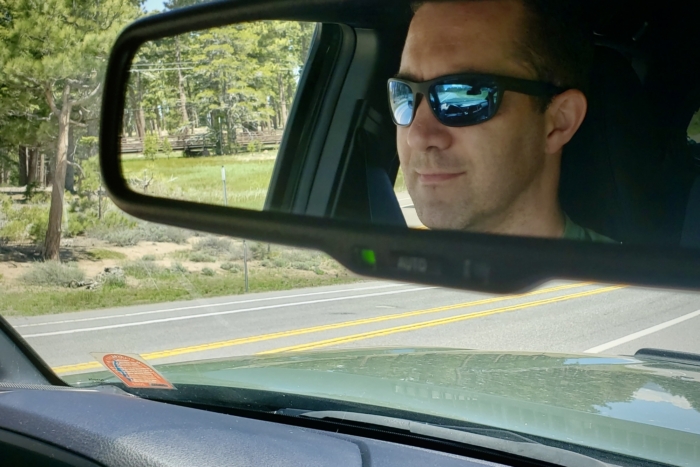
Type of Frame
Frame Size & Shape
Before purchasing a pair of the best driving sunglasses, it is wise to make sure they are well-fitted and comfortable. Different frame sizes and shapes work better for different people. You will want a frame that will not cause discomfort or require constant adjustment.
Some common frame types to check out include wayfarers, aviators, circular, rectangular, shield, and rimless. If you’re unsure what size or type of frame fits your face best, go try on some shades in person to start narrowing down your options.
Frame Type & Coverage
Glasses with wider frames and taller lens designs will provide more coverage and protection. Remember that sunlight can also enter your eyes from the side while you are driving, and it may be wise to choose a pair of glasses that provides added protection from all angles.

Frame Material
While frame material comes down to personal preference, you should be aware that some materials are more flexible and durable than others. Most driving sunglasses feature a frame made out of acetate or nylon. Both materials are lightweight and are able to hold their shape even in extreme conditions. Metal frames are common, too, though they tend to offer less wraparound protection.
Type of Lens
Polarized Lenses
A good-quality pair of driving sunglasses should have polarized lenses. When harsh sunlight reflects off surfaces, including tail lights, puddles, and stop signs, the resulting glare can be temporarily blinding. Polarized lenses can block some of this intense reflected light and make driving safer and more comfortable. Some of our favorite lenses are the ChromaPop lenses from Smith Optics.
Drivers should be aware that polarized lenses can also make it difficult to see some digital dashboard displays. Before purchasing, test the sunglasses against your dash display to make sure you can still read the displays.
Gradient Lenses
Gradient lenses are lighter at the bottom and darker toward the top. While driving, the darker part of gradient lenses can block sunlight, while the lighter portion of the lens will still allow you to see your dashboard and the road clearly.
Transitions Lenses
Transition lenses are able to change from clear to dark depending on the light conditions. Because these lenses rely on direct UV light to work, they probably aren’t the best choice for driving, as your car’s windshield filters out some of the sun’s UV light. Still, there are some great driving sunglasses with transition lenses.

Lens Material
Most sunglasses lenses are made from polycarbonate or glass. Glass tends to offer the best optical clarity and is also harder and more scratch-resistant. While polycarbonate lenses are not as durable, they are more lightweight and less likely to break upon impact.
Durability
The durability of a pair of sunglasses depends on materials, craftsmanship, and weight. In general, glass lenses are more scratch-resistant, while polycarbonate lenses are less likely to shatter under impact.
Acetate and nylon frames strike a good balance between hardiness and flexibility. When you aren’t wearing your glasses, keep them protected in a place where they will not be scratched or damaged.
Price & Value
The price of a pair of driving sunglasses can vary from under $50 to well over $400. Many cheaper pairs will not be polarized or provide adequate UV protection. More expensive sunglasses may include higher-quality materials and lens technology. We always recommend making your selection based on comfort and performance rather than price.
Budget
Believe it or not, but you can still get a good quality pair of polarized sunglasses for well under $100. Our favorite budget pick, the Tifosi Swick Polarized, comes in at just $60, and provides a simple yet modern frame shape and high-quality lenses. We’ve worn them driving, hiking, running, and paddle boarding, and they excel in all activities. At this price point, you may be sacrificing some higher-end materials like lens coatings or more premium frame materials, but a budget pair of shades can protect your eyes just as well as the more expensive models.
Mid-Tier
Once you step up to the $100 to $300 price range, you’ll start seeing a lot of the big name manufacturers. Most of the models we tested from brands like Smith, Ray-Ban, and Oakley fall into this category. In addition to paying a bit more for the brand recognition, this category will typically include higher-grade frame materials and higher-end lens features like the ChromaPop lenses from Smith.
Our top overall pick, the Smith Redding, falls in this category with a list price between $215 and $295, depending on the frame and lens options selected.
Premium
Once you start looking at options over $300, you’ll start seeing more designer brands and products that might be equally focused on style and fashion than on function and performance. Two of the most expensive products we tested, the Shinzu Tamura Umeda ($325) and the Persol Steve McQueen (starting at $472), both have classically styled frame shapes and high-end lens options.
The frame of the Persol Steve McQueen also folds in half, a unique feature we haven’t seen on any other test models. At this price range, the price tag can be attributed to more premium materials, fancier frame designs, and various lens options.
Frequently Asked Questions
That depends. The best pair of driving sunglasses are the ones that offer the kind of comfort and performance that you prefer. We endorse all of the glasses on this list, and we always recommend that you try a few different options before purchasing. Our favorite classic-looking shades are the Shinzu Tamura Umeda and our favorite sportier-looking model is the Smith Redding.
Driving with sunglasses during the daytime helps you see the road ahead and prevents your eyes from becoming fatigued. We always recommend at least having a pair of sunglasses available in the car in case you need them.
Most drivers prefer a neutral-colored lens that is either gray or copper-toned. Neutral lenses enhance your vision without altering the colors that you see. Depending on the light conditions, you may want lighter or darker lenses to filter the appropriate amount of light.
Polarized sunglasses can reduce harsh glare and reflected light. In bright or highly reflective conditions, many drivers successfully use polarized sunglasses to lessen the effects of glare and block harmful UV rays.

The Best Sunglasses for the Outdoors in 2026
Go beyond style with sunglasses that combine classic good looks with next-level technology and design.
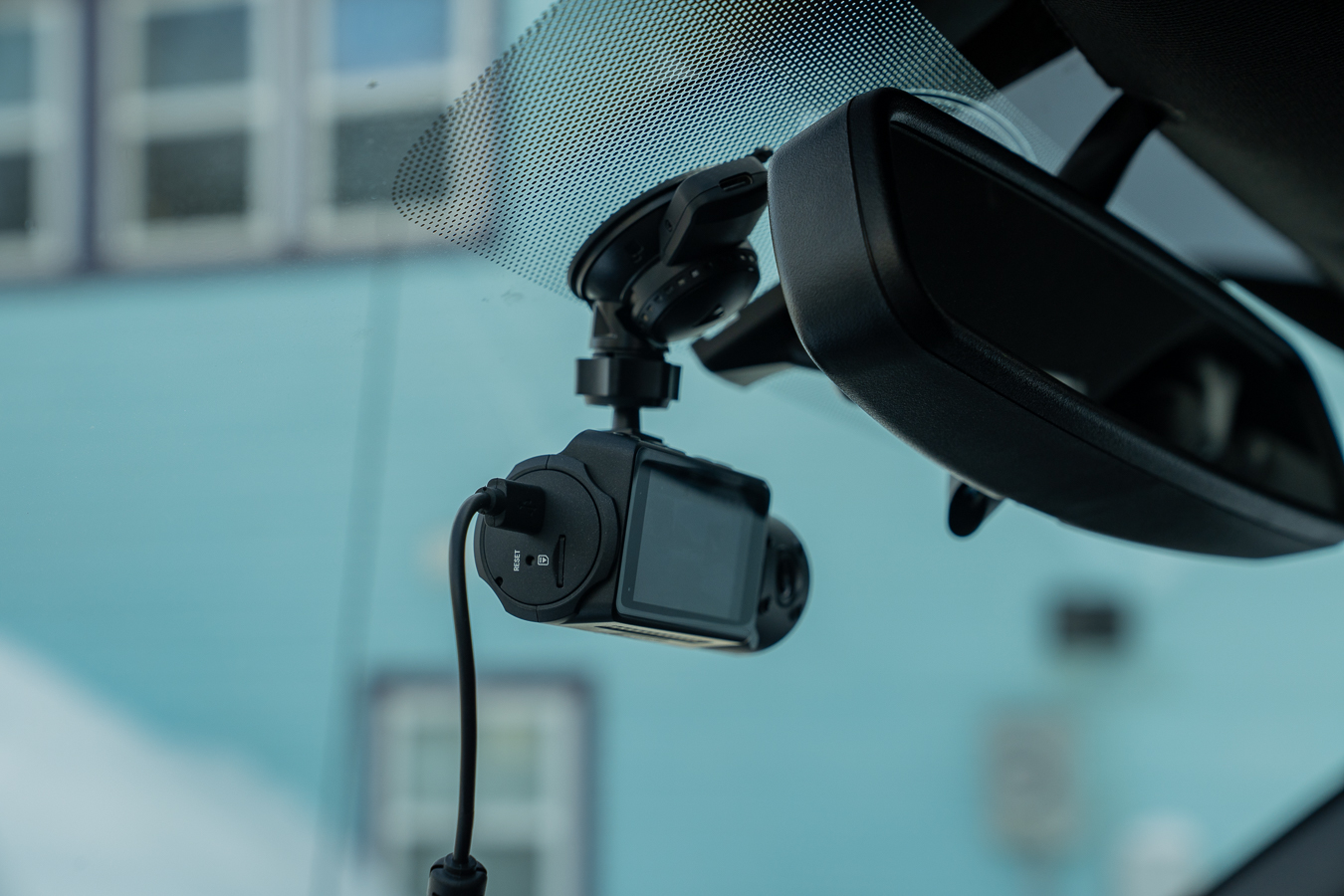
The Best Dash Cams of 2026
Searching for a dashboard camera to record road trips? We tested dash cams so you can find the perfect accessory for your windshield.
